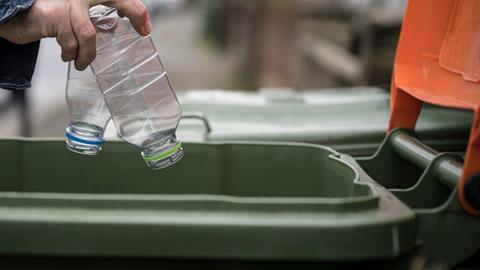The troubles facing the government’s landmark plans to make the industry responsible for the toll of plastic pollution and recycling have deepened.
Last September, Defra announced that until 31 May 2024, no legal enforcement would be taken against producers who failed to report data for extended producer responsibility (EPR) for packaging.
That was despite insisting it was pushing ahead “as planned” with the reporting of data from October 2023 – regardless that the introduction of the actual fees for EPR had been shunted back until October 2025, amid huge concerns from industry over the rollout.
Yet with just six weeks to go until the deadline, a staggering number of producers have failed to provide any data.
As The Grocer revealed today, despite nearly 6,000 large producers enrolling in the reporting packaging data (RPD) portal since it launched last August, less than 2,500 of them, around 40%, have actually submitted their data.
The figures have huge implications for the future funding of recycling across the UK.
Many companies ‘oblivious’ to new EPR rules
Meanwhile, with Defra planning to use the data from companies as the basis for its future fees, the huge lack of compliance heaps yet more problems on the EPR rollout, and poses a real dilemma for Defra and the Environment Agency which is charged with enforcing the data collection.
Perhaps most alarming of all is the widely held view that there could be many thousands of companies, including many from the food and drink industry, who still have no idea the EPR charges are coming in and will apply to them.
Experts report many companies are still “oblivious” to the new rules, which could mean many are in for a nasty shock come the end of May.
But will the government really want to see companies fined in their hundreds and thousands for failing to climb on board? It would hardly look good for the future of EPR to see companies hauled before the legal system even before the scheme comes into full effect.
Yet if the deadline passes without action and firms get away scot-free, what sort of signal does that send?
As one industry expert warns: “The risk is that those that are registered and are submitting data will essentially be footing the local authority waste management fee bill for those that don’t.”
Defra forced to delay labelling requirements
That, of course, gets to the heart of industry fears over EPR, with the industry deeply sceptical that the system will lead to a fair burden spread across the industry, as opposed to falling on the fraction of companies that abide by the rules. Still more are sceptical that the plans as they stand will actually lead to funding reaching the local authority collections that are in such a mess.
Because of its highly technical nature, the woes of the EPR rollout have attracted relatively little in the way of public attention. But the scheme has huge implications for industry costs and the government’s targets to reduce plastic pollution.
As well as the lack of signup, it has also emerged Defra has been forced to delay the labelling requirements under EPR, which had been due to come into force in 2026, for at least a year, amid claims that the mountain of red tape facing companies is making that element of EPR a bureaucratic nightmare.
Yet it is crucial for the government and industry to work together to make EPR a success, and there are at least signs that the right people are now in place to try to make that happen.
With former OPRL boss Margaret Bates appointed as head of the UK EPR scheme, and former Unilever boss and Wrap chair Sebastian Munden put in charge of a new industry steering group, EPR is no longer being left to the mismanagement of a succession of ministers.
Their job is already tough enough, however. Now they face the prospect of watching thousands of companies hauled before the authorities, or carry on in blissful ignorance as the deadlines for the new system come and go.

























No comments yet